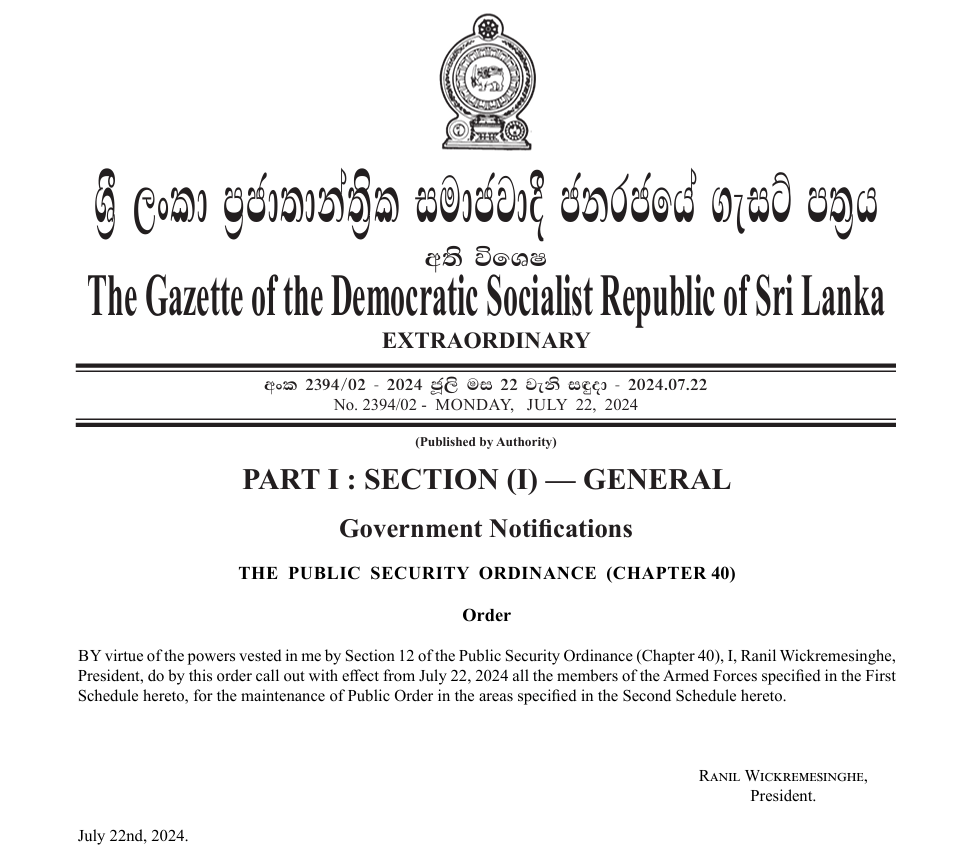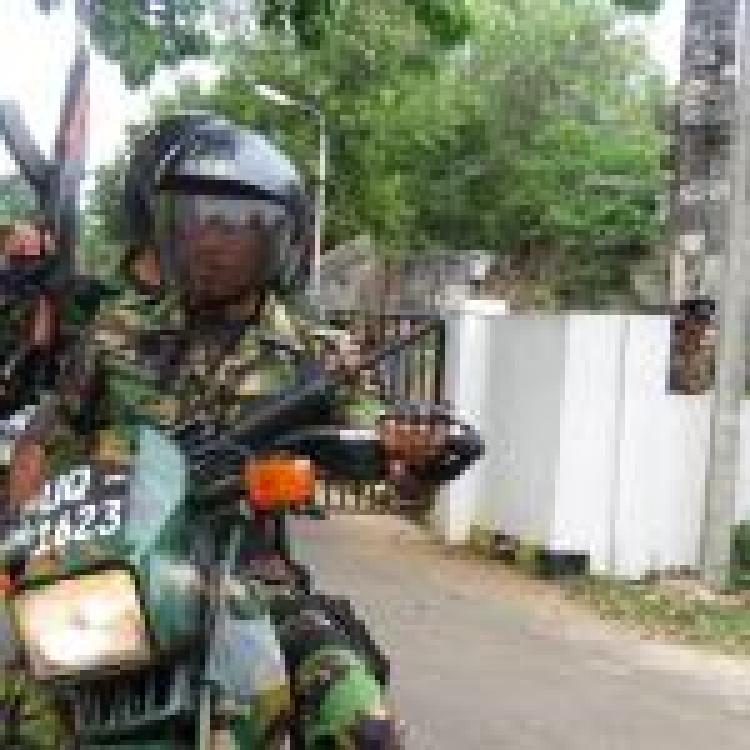
President Ranil Wickremesinghe, as Minister of Defence, has renewed an extraordinary gazette notification calling on the armed forces including Sri Lanka's Navy, Army, and Air Force to maintain law and order in Sri Lanka. According to the gazette notification issued today, available here, the security forces are expected to assist throughout Sri Lanka's administrative districts. The gazette notification comes despite Wickremesinghe's repeated assurances that the country is on a growth trajectory economically and reconciliation.
This is not the first time that Wickremesinghe has renewed the notification. He did so in 2022 and 2023. According to the notification, the Army, Navy, and Air Force are to maintain public order in the Administrative Districts of Colombo, Gampaha, Kalutara, Galle, Matara, Hambantota, Jaffna, Mannar, Mullaitivu, Batticaloa, Ampara, Trincomalee, Puttalam and the territorial water adjacent to such Districts. Administrative Districts of Kandy, Matale, Nuwara Eliya, Kilinochchi, Vavuniya, Kurunegala, Anuradhapura, Polonnaruwa, Badulla, Monaragala, Ratnapura and Kegalle have been included as well.
Rights groups in the past have warned that such emergency regulations should not be used to further crackdown on human rights. “The emergency regulations brought into operation in the name of public security should not become a pretext for more human rights violations. Amnesty International is very concerned such regulations will serve as a springboard for further crackdown on people’s fundamental freedoms, including freedom of expression, peaceful assembly, right to personal security, liberty, and freedom from arbitrary detention," said Thyagi Ruwanpathirana, Amnesty International’s South Asia Regional Researcher.
The emergency regulations give sweeping powers to the police and the armed forces to search and make arrests of ‘suspects’ without due process safeguards. It levies hefty penalties including life imprisonment for ordinary penal offences. Detainees can be kept in custody for up to seventy-two hours without being produced before a Magistrate and guaranteed access to lawyers. Amnesty warned that such prolonged periods of custody without timely judicial oversight or the ability to challenge their detention heightens the risk for detainees to be subjected to torture or other ill-treatment.”


